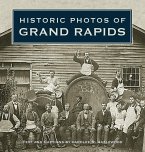The Ku Klux Klan reached its height in the 1920s, and nowhere was it as large and politically powerful as in Indiana, where about 30 percent of the native-born white male population were Klansmen. This book explores the career of D. C. Stephenson, grand dragon of the Indiana Klan, his rise to power, and his eventual conviction for second-degree murder in 1925. Grand Dragon traces Stephenson's background, still shrouded in mystery due to Stephenson's own colorful but imaginary accounts of his early years. A political opportunist, Stephenson's rise to power in the Klan was startlingly swift, but so was his fall from grace. Tried in Klan country for the rape and murder of a young government worker, Stephenson was convicted and imprisoned for a crime of which some still consider him innocent. Who was the man who could proclaim with arrogant self-confidence, "I am the law in Indiana," and how did he and the Ku Klux Klan rise to a position of power unparalleled in other states? Lutholtz gives a valuable history of the Ku Klux Klan and dispels many misconceptions about the Klan, including the notion that it was only a southern organization targeted solely against black Americans. In the 1920's, Lutholtz argues, the Klan in Indiana was not "scented with magnolia blossoms and blood"; rather, its hatred was directed toward Catholics, Jews, and non-native Americans. The compelling force in Stephenson's career was money and political power, not ideology. The cornerstone of Lutholtz's narration is his account of Stephenson's trial, for which the 2,347-page court transcript had been missing for thirty years. A model of investigative reporting, Grand Dragon captures the reader with its skillful narration and compelling story. It also raises troubling issues for the modern reader: Was Stephenson guilty of the crime for which he was imprisoned? Why was membership in the Klan so widespread in the 1920s? What are the dangers of charismatic leadership? And why is this disturbing chapter in Indiana history not better known?
Hinweis: Dieser Artikel kann nur an eine deutsche Lieferadresse ausgeliefert werden.
Hinweis: Dieser Artikel kann nur an eine deutsche Lieferadresse ausgeliefert werden.








